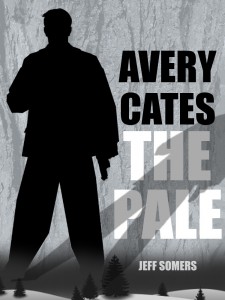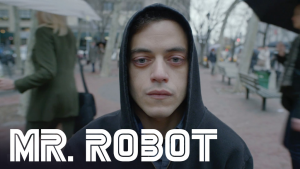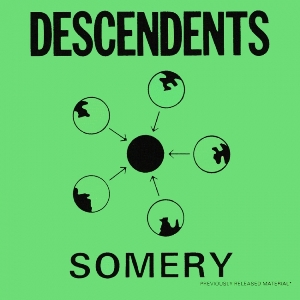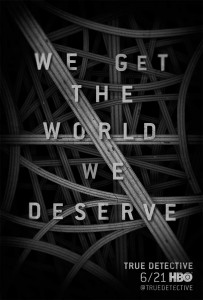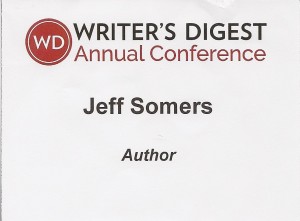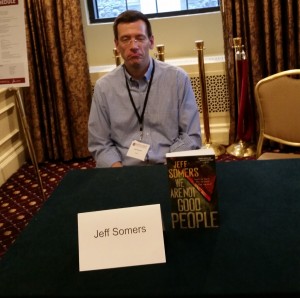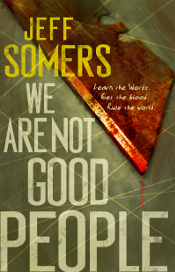
TIM RIGGINS FOREVER
So, about 10 years too late to the party, The Duchess and I binge-watched Friday Night Lights recently. And I do mean binge: We normally don’t tear through shows too quickly, but The Duchess became absolutely addicted to FNL and so it took about three weeks to watch 76 episodes. It’s also one of the rare shows that could make her declare “I hate this show” when it did something emotionally devastating, only to have her welcome it back moments later when it did something uplifting.
Friday Night Lights isn’t a perfect show, despite what some people might say. It had some seriously dubious plot developments (there is no need to speak of the murdered rapist) and it dropped more plot threads, never to be mentioned again, than your drunk grandma at a knitting contest (we must imagine that poor Santiago is still living with Buddy Garrity, possibly in a pit in his basement, putting lotion on its skin).
But what FNL did well, it did exceedingly well. There were few Big Moments; this was a show about normal-sized people without super powers just trying to find their way through modern small-town life. But when it came to Character Arcs and sketching out the lives of these people, it was nearly perfect. Let’s discuss two specific things that are representative of the show as a whole: Tim Riggins, and the Housing Market in Dillon, Texas.
The Housing Market in Dillon, Taxes
One of the simplest ways to define a character in a visual medium is to show where and how they live. Yet for most TV shows (and most films) there’s a tendency to go for Setting Porn instead of realism. The kids on Friends couldn’t afford those impossible large apartments, and the titular Broke Girls on that awful sitcom Two Broke Girls live in a huge apartment that people would pay top dollar for, rats and all.
But in FNL, where the characters lived was pegged very realistically to their socioeconomic status. Smash Williams, whose mother moved her family from a crime-ridden town nearby and can barely afford West Dillion, lives in what appear to be either public subsidized housing or very low-cost rentals. Vince Howard, living in poverty-stricken East Dillon, lives in similar lodgings with his drug-addled Mom. Matt Saracen, living with his grandmother while his father is in Iraq and his mother is elsewhere, lives in a sagging old house with a scrabbly front yard. The Riggins Brothers live in a run-down ranch house that had once been part of a new development.
Moving up a little, Coach Taylor and his dual-income family live in a nice enough home on a suburban-looking street, with a neat front yard, and the taylors feel safe enough to play pin-pong with the garage door open at all hours. But they’re just municipal employees; the house is tight on space and little things are broken or run down. They’re doing okay, but there are frequent dreams of larger places and frequent arguments about money.
Buddy Garrity, initially a successful car dealer, lives in a much larger and newer home. It’s not a mansion, but it’s much nicer than the Taylor home. And the McCoy’s, rich and moving to Dillon solely to get their talented quarterback son into the best high school football program around, do live in a mansion. The housing for every character is almost perfectly chosen. It tells you everything you need to know about their economic background, their social status (outside of football, of course, which has its own social pecking order the town respects), and how they live, all without one word of exposition of “As you know … ”
Tim Riggins
As played by Taylor Kitsch, the character of Tim Riggins initially seems like a poorly-acted jock asshole, the sort of athletically gifted handsome lad who coasts through everything and while not precisely mean–though he is, initially, selfish and callow–does a lot of damage solely by dint of not really caring about anyone else. This character could have been a sad cliché, but FNL approached character development in a very smart and measured way.
First of all, most of the true character development took place in the younger characters, the kids. The adults in the show had their tribulations and their moments of clarity, but by and large all the adults are the same people, basically, that they were at the start of the show (which only covers about 3 years of fictional time, after all). It makes sense that characters that start off anywhere from 15 to 18 years old would go through a lot and emerge on the other side changed people: That’s what happens when you’re in high school. Me, I’m 44 fucking years old. I am who I am.
Tim Riggins is handled with almost supernatural subtlety. In the beginning his best qualities are his absolute affection for his friends, and a brooding inability to complain. Over the course of the show the writers slowly move Tim, an inch at a time, from the entitled jock to an actual adult person, someone who sees his glory days as a past chapter in his life–but not with any bitterness. Tim, in the finale, is a man who still loves football, still loves Dillon, Texas, but sees clearly that winning the State Championship as “Big Tim Riggings” of the Dillon Panthers was just a great moment–a great moment that’s gone. He practically spends the last two seasons of the show advising people to put football in perspective, to value it and enjoy it, but to be prepared to leave it behind.
Tim’s depicted as a fundamentally good guy who slowly figures out that you don’t do good things and behave in a responsible or moral way because you’re rewarded for it–in fact, the show mined a lot of drama and humor out of the fact that Tim often did good deeds only to be punished for them–but rather because it’s the right thing to do. After being crushed underneath a litany of bad breaks–deadbeat father, idiot brother, continually assumed to be an amoral seducer of underage girls, and finally falsely confessing to a crime and spending some months in jail–Tim could easily have been depicted as a rage-filled asshole. Instead, he finds some peace in knowing exactly what he wants: A house he builds himself on the outskirts of Dillon, a job that pays the bills, his brother and his extended family.
That’s a character arc that’s almost a straight line in its subtlety, yet it’s a powerful moment, and it’s the reason the series chose to end on the image of Tim and his brother building that house. Tim Riggins was the whole point of the show, in a way: People suffer, people triumph, and in the end all you have is what you make for yourself.

